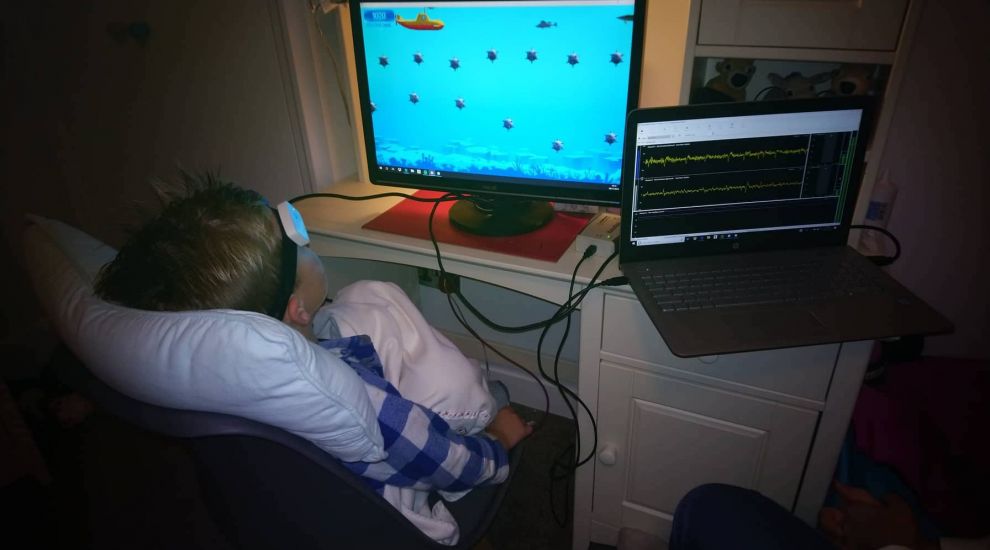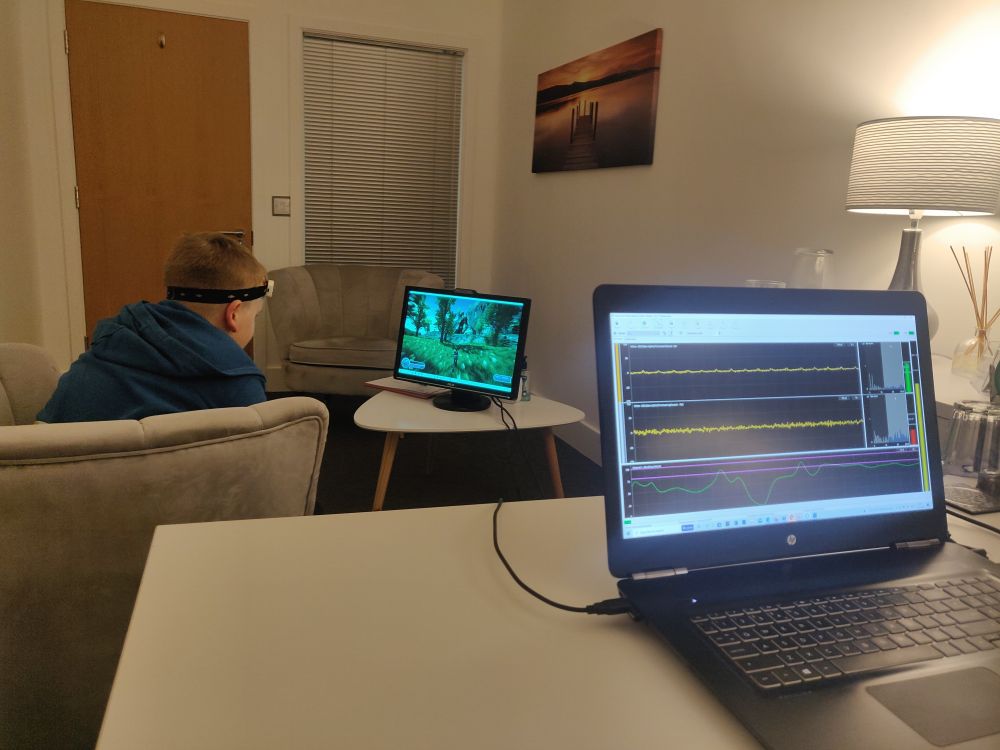


A former social worker has opened up about the ‘brain training’ that she says helped her overcome a personal battle with depression - and how she now wants to help other islanders 'rewire' their minds with the help of electrodes and video games.
Elizabeth Demont runs the only 'neurofeedback' clinic in Jersey... But what is neurofeedback, how does it work, and how can it help with wellbeing?
Neurofeedback, also known as 'EEG biofeedback', is a non-invasive and medication-free approach.
It's claimed that it can help alleviate the effects of some mental health conditions, ranging from ADHD to anxiety and depression.
The treatment is popular in Europe and especially in the United States, but is still relatively obscure in the UK.
Elizabeth Demont, a former social worker, now runs the only Neurofeedback clinic in Jersey.
She began working at the Shelter Trust in 2004, before eventually moving to Mind Jersey in 2019. She qualified to perform the treatment in 2016 Poland and is a member of the Applied Psychophysiology and Biofeedback Society.
Following her own depression, Elizabeth struggled to find a solution that worked for her.

Pictured: Neurofeedback is a relatively obscure treatment in the UK, but is popular in Europe and the United States.
She said: “They prescribed me drugs all the time. I tried CBT but I just couldn’t do it. I couldn’t do anything, I couldn’t even get up to take a shower! It was destroying me.”
After trying a number of different approaches, from mindfulness to hypnotherapy, Elizabeth finally decided to try neurofeedback on a trip back to her native Poland. After six sessions, she says she was “amazed with the results.”
“I felt completely different, I had no fear in my stomach, no cramp.”
As a result, she wanted to learn how to provide this service to others and decided to open her own practice, Premier Biofeedback, in Jersey in 2019.

Pictured: Neurofeeback can be used to treat depression, anxiety and ADHD.
The aim of neurofeedback is to encourage the brain to develop healthier patters of activity.
Elizabeth provided the following analogy: “In the same way that you go to the gym to train a bicep, you have to put in the exercise to train your brain.”
As such, the aim of neurofeedback is to encourage the brain to develop healthier habits over a period of sessions.
Before the sessions begin, Elizabeth will sit down with the patient, consult their medical history and set out exactly what the patient hopes to achieve from the sessions.

Pictured: "In the same way that you go to the gym to train a bicep or something like that, you have to put in the exercise to train your brain.”
Then, during the first session, Elizabeth will attach electrodes to the patients head which will obtain a real-time measurement of their brain waves which she will monitor. The patient will then begin to play a video game, watch a piece of relaxing footage or even listen to music.
The patients' brainwaves will then begin to affect the activity they are undertaking. For example, if the patient has come in to help with their anxiety, when the patient becomes stressed or worried, the picture of the footage they are watching will blur. The only way to unblur it, is to relax.
As such, the patient is able to train their brain, over a number of sessions, to develop better brain habits through positive feedback.
"Through the repetition, you learn to rewire your brain.”

Pictured: A neurofeedback session, the patient undertakes an activity whilst Elizabeth monitors their brainwaves.
Elizabeth says it takes "abit of dedication" to get the best results.
"When people ask me how long it will take to work, I will reply, 'How long would you go to the gym for to train a particular muscle?' The same principle applies.”
She says that people may feel a "little tired" after each session as they require "a lot of concentration", but noted: "It is a bit like taking an exam - you have to push yourself to get results.”
Through her work, and sharing her own experience, one of Elizabeth's main aims is to remove any shame around discussions of mental health.

Pictured: Neurofeedback is medication free and non-invasive.
“I know mental health is a big issue over here and it took me a long time to talk about my own depression," she explained.
'I felt ashamed. I want to break the stigma so I decided to do something to help people.”
Comments
Comments on this story express the views of the commentator only, not Bailiwick Publishing. We are unable to guarantee the accuracy of any of those comments.